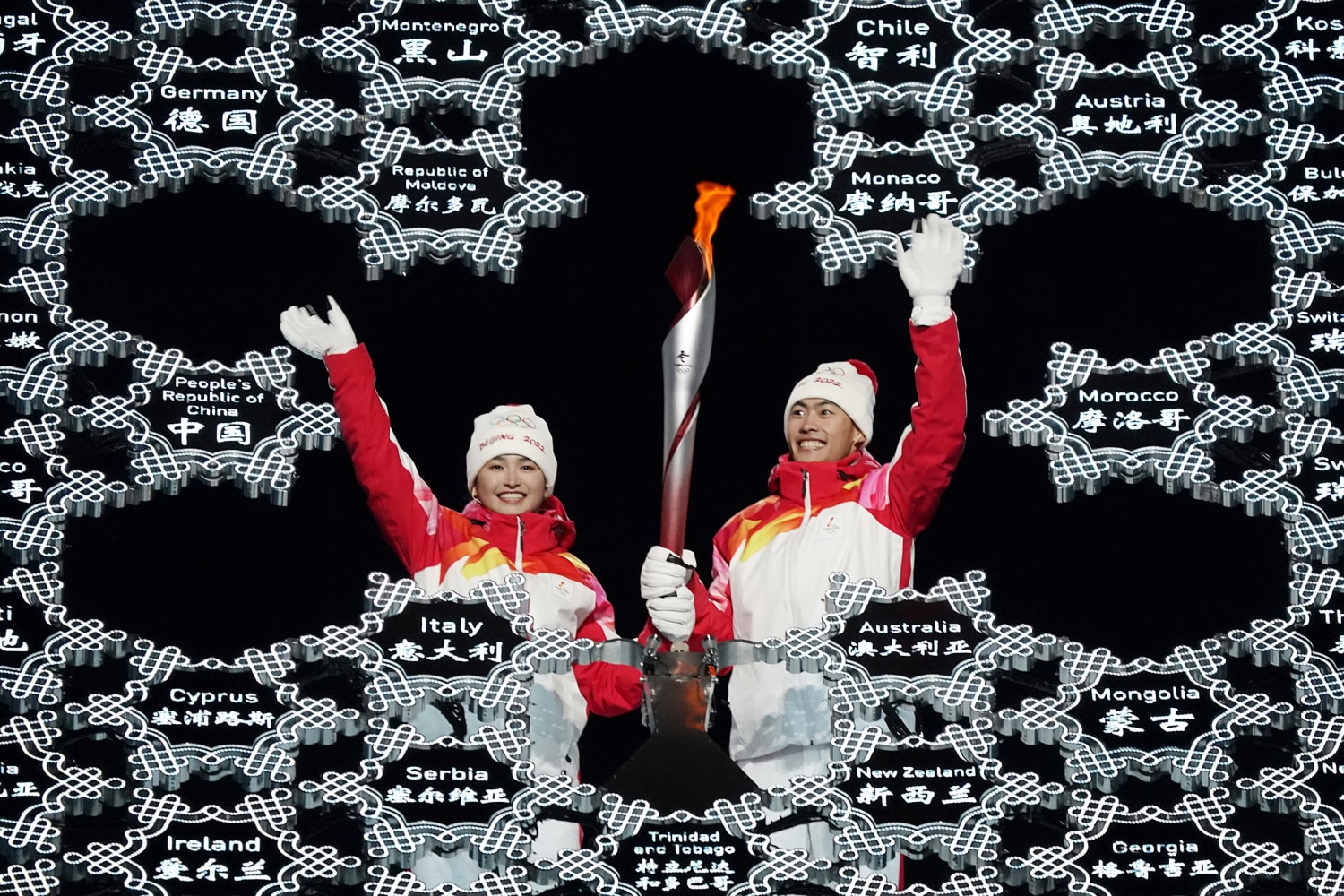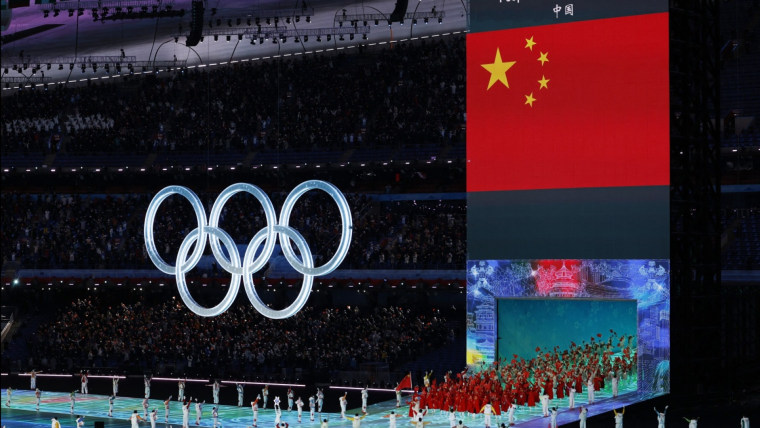The 2022 Winter Olympics kicked off Friday in spectacular fashion as one of the final torchbearers in the opening ceremony was revealed to be Uyghur cross-country skier Dinigeer Yilamujiang.
For a country that has been condemned for its treatment of the Uyghurs, a predominantly Muslim ethnic minority in the western Chinese region of Xinjiang, the symbolism was impossible to miss.
The lighting of the Olympic cauldron by the final torchbearer has long been a centerpiece of Olympic opening ceremonies and marks the beginning of the Games. It is considered a great honor to be the last athlete to carry the flame.
This year there was no cauldron per se, but a giant snowflake in the center of which Yilamujiang and another athlete, Zhao Jiawen, placed the flame.
Yilamujiang is the first Chinese cross-country skiing medalist at an International Ski Federation event, according to China’s official Xinhua news outlet. Born in Xinjiang to a father who was a cross-country skier, this is her first Olympics, according to her official Olympic bio which says she is 20 years old.
Zhao, 21, is set to compete in the Nordic Combined event, according to his bio.
After the two young athletes placed the flame in the snowflake, surrounded by children in a heart formation, it slowly rose up into the air in the “Bird’s Nest” National Stadium in central Beijing as fireworks lit up the sky above.
“This was a riposte to President Joe Biden for skipping these Olympics and a message to the West: China won’t be lectured to on human rights, or on any other issue,” said Andy Browne, editorial director of the Bloomberg New Economy Forum and a China expert who appeared on NBC’s broadcast of the ceremony.
In the run up to the competition, rights groups and Western governments have attacked China’s human rights record. China has come under heavy criticism for its treatment of Uyghurs and other mostly Muslim minorities, including the internment of an estimated 1 million people at a network of camps where detainees have reported cruel and degrading treatment, including torture.
Chinese authorities maintain that their actions are aimed at stamping out terrorism and deny allegations of mistreatment.
In December, the White House announced a diplomatic boycott of the Games, citing human rights abuses including the government’s treatment of the Uyghurs, which the U.S. government has described as genocide. Australia, Britain and Canada have followed with their own boycotts on human rights grounds. The subject, along with the coronavirus pandemic, has overshadowed the start of the two-week sporting extravaganza and by opting for Yilamujiang as the final torchbearer China doubtless hopes to take back control of the narrative around its Uyghur population.
Asked about the Uyghurs at a news conference Thursday, International Olympic Committee President Thomas Bach repeated the IOC’s position that it would not comment on political issues because it risked putting the Games at risk.
“If at the end, you would have Olympic Games only between the National Olympic Committees which governments agree on every political situation then the Games would lose their universality and with the universality, they would lose their mission,” he said.
The show Friday was a dazzling technology-driven spectacle that featured a light show, fireworks and dancing.
Source: | This article originally belongs to Nbcnews.com










